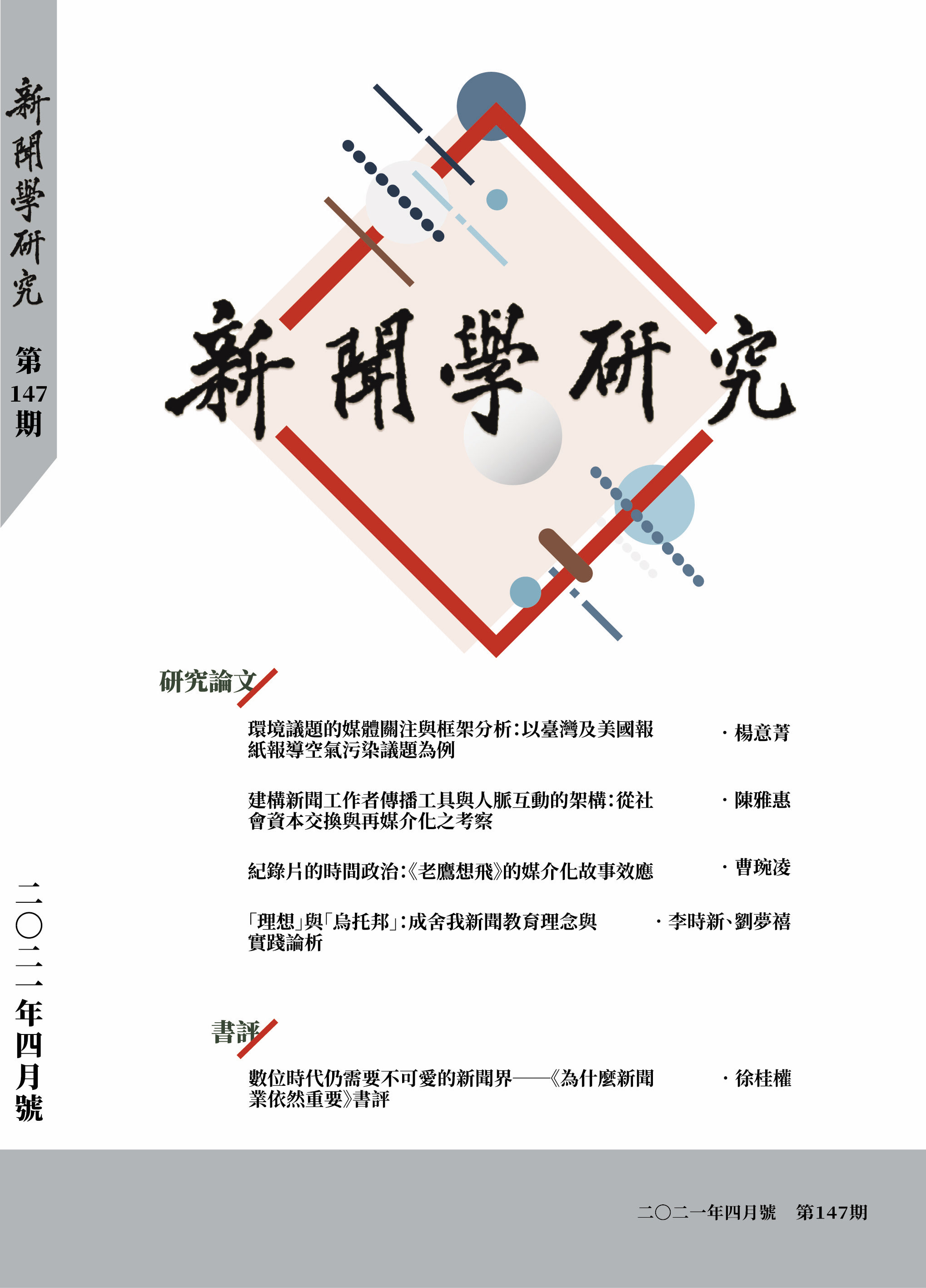前期出版
前期出版
頁數:151﹣179
「理想」與「烏托邦」:成舍我新聞教育理念與實踐論析
“Ideal” and “Utopia”: On Cheng Shewo’s Idea of Journalism Education and Its Practice
研究論文
作者(中)
李時新、劉夢禧
作者(英)
Li Shixin, Liu Mengxi
關鍵詞(中)
手腦並用、北平新聞專科學校、勞動分工、勞資衝突
關鍵詞(英)
combined use of hands and brains, division of labor, labor conflict, Peiping College of Journalism
中文摘要
報紙的普及率低以及勞資衝突和勞心勞力對立是近代中國新聞界存在的主要問題。成舍我的化解方案就是創辦學校,培養學生成為既能從事腦力勞動又能從事體力勞動的專業人才。這樣,員工橫跨不同部門,實行角色重合,部門之間的矛盾就迎刃而解了。一個勞資合作、勞心勞力者合一的報館將有助於報紙的發展,促進報紙的大眾化。成舍我沒有認識到勞心勞力的對立主要是由分工的局限性造成的,人為地打破兩種不同性質勞動的區隔不僅違背了分工的客觀規律,同時又製造了新的對立,即勞資衝突。因此,成舍我「手腦並用」的新聞教育理念,除了拓展學生的知識和印刷技能,沒能提供一個有效的解決方案,是他自陳的「烏托邦的嘗試」。另外,成舍我提出的「報館主權共有」設想與他闡述的「手腦並用」新聞教育理念有著密切的關聯,也指向中國新聞界的問題;但旨在消減勞資衝突的「報館主權共有」實際上意味著取消管理勞動與執行勞動的分工,與成舍我報館所有者和管理者的身分相抵觸,因此無法施行。
英文摘要
The low popularity of Chinese newspapers, labor conflicts, and the contradiction between mental labor and physical labor were the main problems of modern Chinese press. By establishing the Peiping College of Journalism, Cheng Shewo wanted to train students to become professionals who could engage in both mental labor and physical labor. In this way, if the employees were able to play overlapping roles and share all the work across different departments, then contradictions between them would be easily solved. Newspapers run under labor cooperation could help with the development of this form of media and continue to promote their popularization. However, Cheng Shewo did not realize that the contradiction between mental labor and physical labor was mainly caused by the limitation of division of labor. Artificially breaking the segregation of the two different forms of labor violated the objective law of the development of division of labor, but at the same time created a new contradiction—that was, labor conflicts. Cheng Shewo’s educational idea of the “combined use of hands and brains”, as he stated, did not provide a satisfactory solution, as it was only “a Utopian attempt”, except for its ability to expand the knowledge and printing skills of students. Cheng Shewo’s idea of “newspaper sovereignty sharing” was also closely related to his idea of “combined use of hands and brains” and furthermore treated the chronic problem of the Chinese press. In fact, the idea of “newspaper sovereignty sharing”, which aimed to alleviate labor conflicts, was to abolish the division of labor between management and execution. This was inconsistent with Cheng Shewo’s actual identities of the owner and manager of his newspapers and thus could not be implemented.
1309次下載



